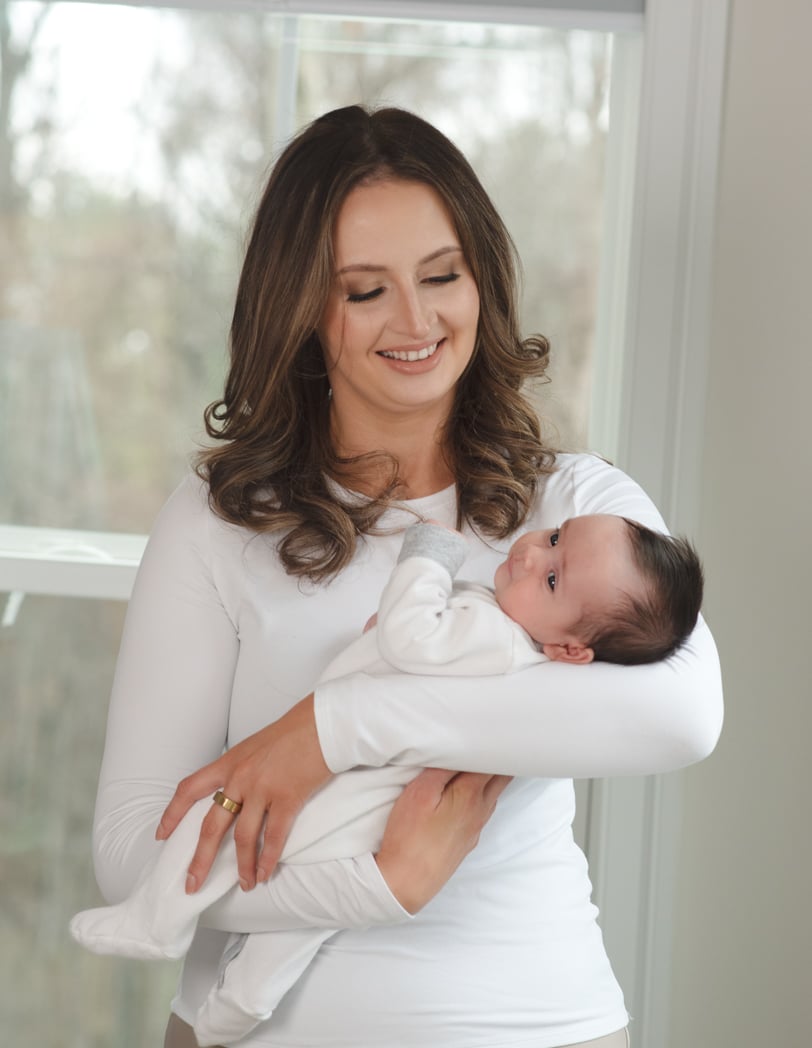
One of the most common challenges parents face is figuring reasons their babies wakes up at night. While it’s completely normal for babies to wake during the night, frequent or extended wake-ups can be exhausting for the whole family. Understanding the reasons behind these night wakings is the first step toward better sleep for your baby—and you! As a multiyear experienced Pediatric Sleep Consultant and founder of Baby Sleep Pros, I specialize in helping families navigate these challenges with empathy and expertise. Let’s dive into the top five reasons babies wake up at night and explore solutions to promote peaceful, restorative sleep.
1. Hunger
For newborns and young infants, hunger is the most common reason for night wakings. Due to their small stomach and inability to consolidate their caloric intake during the day, babies require frequent feedings, which is developmentally appropriate in the early months. However, as babies grow, they can often go longer stretches without needing to eat at night. Very frequently, night feedings become sleep associations (babies use it as a crutch to fall asleep) which makes it harder for parents to tell whether they still need that feeding or it is just a sleep prop.
How to Fix It:
✨ Ensure your baby is getting enough calories during the day, from both milk and solids, if they are at that age. Offering regular, full feedings during the day can help reduce the need for nighttime snacks.
✨ Gradually fade night feedings by delaying it at night at small increments – if your baby is really hungry they will keep protesting and if it is just a comfort or sleep prop, they are not going to work this hard for a feeding and will go back to sleep.
✨ Remember, every baby is different. If you’re unsure whether your baby is ready to drop night feeds, consult your pediatrician.
2. Sleep Associations
Sleep associations are #1 reason babies wake up at night. Also known as a sleep prop, sleep association is something a baby uses to fall asleep and connect sleep cycles at night., e.g. feeding, rocking, pacifier, motion. Why are sleep props a problem? A baby requires that particular environment to be recreated every time they wake up at night. Sometimes, it is every sleep cycle which can be plain EXHAUSTING for parents and the baby because no one will wake up rested and happy.
How to Fix It:
✨ Teach your baby to fall asleep independently by gently transitioning away from these sleep associations. This doesn’t mean leaving your baby to cry; it means introducing techniques that encourage self-soothing.
✨ Use gradual methods to reduce dependency on external sleep aids. For instance, if your baby needs to be rocked, you can rock them less intensely over time until they no longer need it.
At Baby Sleep Pros, I specialize in guiding families through this process with approaches tailored to your baby’s temperament and your family’s goals.
🌙 SLEEP SUPPORT DETAILS – CLICK HERE🌙
3. Developmental Milestones
Babies experience rapid development in their first year, including rolling, sitting up, crawling, and standing. These milestones are exciting but can disrupt sleep as your baby practices new skills or processes changes in their growing brain.
How to Fix It:
🌙 Be patient and provide extra support during these phases. Your baby’s disrupted sleep is often temporary.
🌙 Allow your baby plenty of time to practice new skills during the day. This helps them master these abilities and reduces the need for nighttime practice.
🌙 Stick to your bedtime routine and be consistent with sleep practices to provide stability during this period and avoid developing new habits.
4. Overtiredness
Contrary to popular belief, especially among grandparents ;), overtired babies don’t sleep better; they often sleep WORSE. When a baby is overtired, their body releases stress hormones like cortisol to help them stay awake, making it harder for them to fall, stay asleep or causing them to wake up very early.
How to Fix It:
🌙 Watch out for your baby’s SLEEPY CUES. (this link will take you to my very details IG post on sleepy cues!)
🌙It is always a great idea to watch a close eye on your baby’s wake windows which the amount of time they can comfortably stay awake between naps, will help prevent over tiredness.
🌙 Predictable daily routine can balance active playtime & rest.
🌙 Start your bedtime routine early enough to avoid an overtired state. A calming routine can include a warm bath, a story, and gentle cuddles.
5. Discomfort
Babies may wake at night due to discomfort from teething, illness, temperature changes, or even an uncomfortable sleep environment.
How to Fix It:
🌙 Ensure your baby’s sleep environment is conducive to good rest. Keep the room dark, quiet, and at a comfortable temperature (68-72°F is ideal) with a white noise on.
🌙 If your baby is teething, provide relief with a cold teething toy or consult your pediatrician about appropriate pain relief.
🌙 Address any signs of illness promptly and provide the care your baby needs to feel secure and comfortable – WHEN A BABY IS SICK, SLEEP TRAINING SHOULD PAUSE. Offer your love and comfort. Resume sleep training when baby is feeling better.
Why Independent Sleep Matters?
Teaching your baby to sleep independently is a gift. Independent sleep doesn’t just mean longer stretches of rest for your baby (and you); it also contributes to your baby’s growth, health & development. Babies who can self-soothe (not self-regulate) often adapt better to changes and transitions as they grow.
At Baby Sleep Pros, my approach is rooted in empathy and expertise. I understand that every baby is unique, and I create customized sleep plans to suit your child’s needs and your parenting style. Whether you’re navigating the newborn phase or addressing sleep challenges with an older infant, my AT-HOME and VIRTUAL services provide the guidance and support you need.
When to Seek Help?
If your baby’s night wakings persist despite your efforts, it might be time to seek professional support.
As a Pediatric Sleep Consultant, I’m here to help you understand your baby’s unique sleep patterns and guide them toward better rest.
By addressing the underlying reasons for your baby’s night wakings, you can make a change that will benefit the entire family. Sleep training isn’t about perfection; it’s about progress and balance. With the right approach, you can achieve the restful nights you’ve been dreaming of.
Ready to take the first step? Contact me today to learn more about how I can help your baby (and you) sleep better!
TO THE BALANCE YOUR FAMILY DESERVES,






